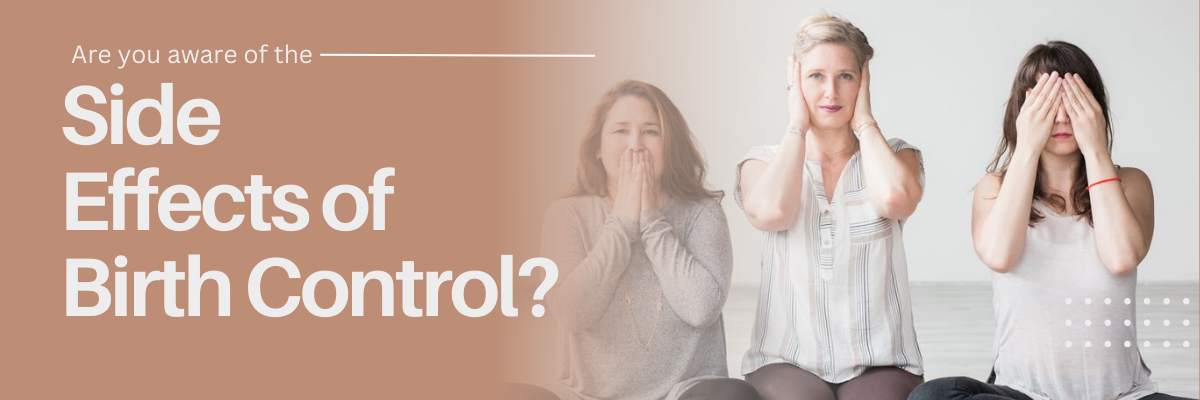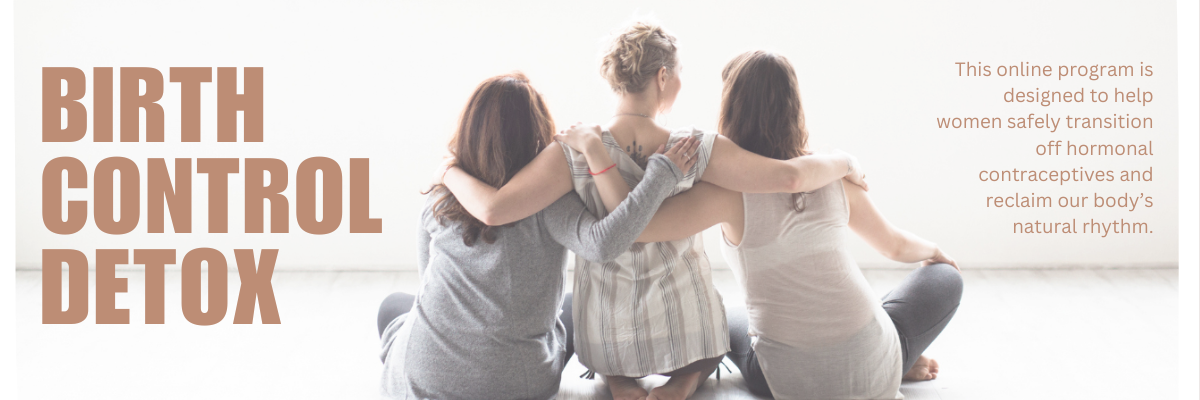Revealing the Top 5 Birth Control Side Effects: What You Should Know and How to Take Charge of Your Health
Are You Aware of the Hidden Side Effects of Birth Control? Discover the Top 5 Impacts on Your Health and How to Take Control!
Oral contraceptive pills (OCPs) have long been a popular solution for women seeking effective birth control and managing reproductive health. However, many women are unaware of the potential side effects that can arise from synthetic hormones. As one of the most widely prescribed methods of contraception, it’s important to understand the possible long-term impacts on your body.
In this blog, we’ll uncover the top five side effects of birth control pills and explain why being fully informed is crucial to making the right decision for your health and well-being.
1. Influence on Partner Preferences and Attraction
Did you know that hormonal birth control can actually influence the type of partner you are attracted to?
Research has shown that women on the pill may have a shift in preference, often toward individuals with similar genetic traits, which could affect long-term relationship compatibility. Specifically, women on hormonal contraception may be more attracted to men with similar histocompatibility complex (MHC) genes, potentially leading to consequences for future family planning. Understanding how birth control affects partner selection is an important consideration for those thinking about long-term relationships and starting a family.
2. Changes in Brain Structure and Emotional Well-Being
Incredible but true: birth control pills can alter your brain structure.
Studies have shown that hormonal contraceptives can reduce the thickness of certain brain regions associated with emotional responses, reward processing, and stress management. This may explain the increased incidence of mood disorders like anxiety and depression among women on the pill. These changes can also impact motivation and general mental health. If you've noticed shifts in your emotional well-being, it could be time to reevaluate your birth control method and consider alternatives that support a balanced, healthy brain.
3. Digestive Health Concerns and Increased Risk of IBS
Did you know that birth control pills can affect your gut health?
The estrogen in OCPs may disrupt the intestinal lining, making you more vulnerable to digestive issues like irritable bowel syndrome (IBS) or inflammatory bowel disease (IBD). Women on hormonal birth control have been shown to have a 30% higher risk of developing IBD compared to those who aren’t using the pill. Symptoms like bloating, stomach cramps, diarrhea, or constipation can significantly affect your quality of life, making it essential to consider how birth control may be impacting your digestive health.
4. Increased Risk of Depression and Mental Health Issues
If you’re feeling increasingly down or experiencing mood swings, your birth control may be to blame. According to a 2016 study by JAMA Psychiatry, women using hormonal birth control, especially progestin-only methods like the mini-pill or Mirena, are at a higher risk of developing depression. With mental health being a top priority for women everywhere, it’s essential to have an open conversation with your healthcare provider about the potential effects hormonal birth control may have on your mood, mental clarity, and overall emotional well-being.
5. Nutrient Deficiencies and Impact on Overall Health
Hormonal birth control can lead to a deficiency in essential nutrients that support various vital functions in the body. Studies have shown that OCPs may lower levels of important vitamins and minerals, including folic acid, B vitamins (B2, B6, B12), vitamin C, magnesium, and zinc. These nutrients are critical for immune function, hormone balance, energy production, and cognitive health. Without proper levels, you might experience fatigue, mood swings, or weakened immunity. It’s important to speak to your healthcare provider about how birth control may be affecting your nutrient intake and consider supplementation if necessary.
Take Control of Your Health with the Birth Control Detox Program
If you’re experiencing unwanted side effects from birth control or are simply ready to take a more natural approach to your reproductive health, it’s time to explore alternatives. The Birth Control Detox Program was designed specifically to help women safely transition off hormonal contraceptives and reclaim their body’s natural rhythm. This comprehensive online program offers step-by-step guidance, nutritional support, and lifestyle tips to support your body during the detox process and restore hormonal balance.
Whether you’re looking to quit birth control entirely, manage side effects, or find a more holistic solution to your contraception needs, the Birth Control Detox Program provides the resources and knowledge you need to make an informed decision. Don’t let birth control side effects take control of your life—empower yourself to take control of your health.
Your Health, Your Choice
While hormonal birth control has been a go-to for many women, it’s crucial to understand its potential side effects and how they can affect your overall health. Empowering yourself with knowledge about the risks and benefits of birth control helps you make the best decision for your body. Always consult with your healthcare provider before making any changes to your contraception method, and explore natural fertility alternatives that may better align with your needs.
If you’re ready to take the next step toward hormonal balance and a healthier lifestyle, join the Birth Control Detox Program today and begin your journey toward reclaiming your body’s natural flow.



